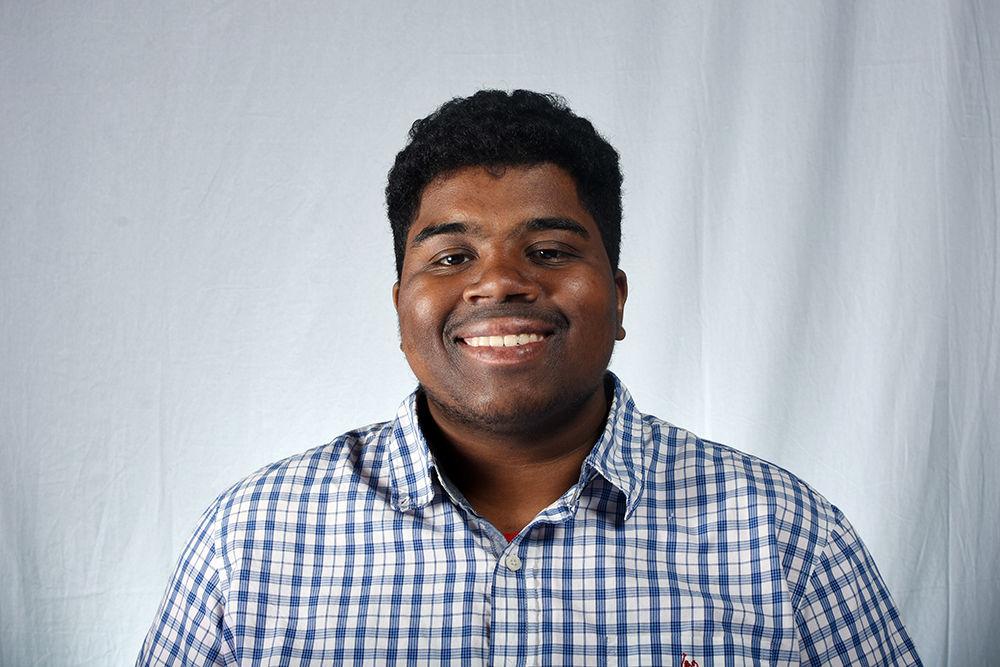
Shawn Fredericks
Sexual violence is a hot-button issue on campuses, and with April being sexual assault awareness month, I believe it is time to change the narrative around sexual assault and justice.
For a long time, many people — including myself — have thought of justice for sexual violence survivors as being based on punishment. In other words, a harsh crime required a harsh punishment — rape perpetrators deserved years in prison or worse. That is what I believed to be the best way to deal with criminals in general — until I realized I was wrong.
Retributive justice is not the way to deal with criminals, and when it comes to the crimes surrounding sexual violence or any other crime, restorative justice is needed: rehabilitation, not punishment. The problem in our current society is that we feel the need to punish people and then forever ostracize them. We treat offenders like monsters, instead of human beings, which is wrong.
While pro-punishment logic is self-gratifying, it does nothing for the survivors of sexual assault. I’m not the only one who thinks so: Sofie Karasek, a co-founder of End Rape on Campus and the national organizer for the #InMyWords campaign, expressed the need for justice that affirms survivors in her New York Times piece, “I’m a Campus Sexual Assault Activist. It’s Time to Reimagine How We Punish Sex Crimes.”
“Many student activists have become disillusioned with an emphasis on punitive justice — firings, expulsions and in some cases, prison sentences,” Karasek said. “We’ve seen firsthand how rarely it works for survivors. It’s not designed to provide validation, acknowledgment or closure. It also does not guarantee that those who harmed will not act again.”
Karasek goes on to detail how punitive justice systems failed her because the person who she and four other survivors reported was given a light punishment and continued to assault another person. The mentality affected Karasek during Q&A sessions where people would constantly ask her why she didn’t take her allegations further to the police. This made her feel like the injustice done to her was not bad enough unless she wanted to put that person in jail. For Karasek, she wanted to move on with her life and did not want to see that person in prison.
Karasek and other survivors of sexual violence often have only two options: do nothing or get the offender formally punished. However, most people do not pursue the second option. Regardless of that, justice for survivors should not be determined through the punishment of a wrongdoer, but through their ability to move on from the harrowing experience.
NC State has made steps towards this path by providing resources for survivors and the accused through the Counseling Center. However, NC State is still under a punitive policy where the ultimate goal for reporting sexual misconduct is a hearing where sanctions are given or not given based on evidence of the incident. Sanctions include a range from suspension to expulsion.
While the ability to report is important, our university needs to adopt a restorative method in resolving these conflicts, including a truth and reconciliation commission style of conflict resolution, where the goal of a hearing is not to establish punishment, but to unpack the incident and supporting the rehabilitation of both the survivor and the abuser.
The goal of justice for sexual violence survivors should be healing. That is not to diminish the experiences of sexual violence survivors, who are justified to feel how they want to feel about their experiences, but our justice systems need to be updated to properly affirm and help with recovery for the survivors of sexual assault.
Additionally, what is often forgotten is that sexual violence is more likely to be carried out by people we know than strangers, which makes it all the more paramount that alternative justice systems be utilized, especially on college campuses. The people who commit these horrible acts are our roommates, our co-workers and our romantic partners. Would you want to see these people in prison, or would you want see them take actual accountability over their actions, be rehabilitated and change their behavior for the better?
Author and psychotherapist Wendy C. Ortiz questioned society’s reliance on retributive justice systems in response to the accusations from survivors of sexual assault in her article “Punishment Is Not Justice: Defying Definitions after Sexual Violence.”
“If we are only willing to call out abusers to scapegoat and isolate them, what progress have we made toward healing for the survivor, and even the abuser?” Ortiz asked, “If we press charges and enter the criminal justice system to seek justice and an abuser is incarcerated, how does this address the harm done on a human-to-human level? And how are we complicit if we stand by without questioning any of the methods currently in favor when dealing with the avalanche of accusations occurring in a retributive, rather than a restorative, system?”
The change we want to see in society will not come from old systems, but from new ones, including our justice system. If survivors are to have justice, it is through restorative justice, a form of justice that both affirms their experiences and heals them, but also heals the abuser. It is about time our society begins to redeem people instead of punishing them and casting them out.